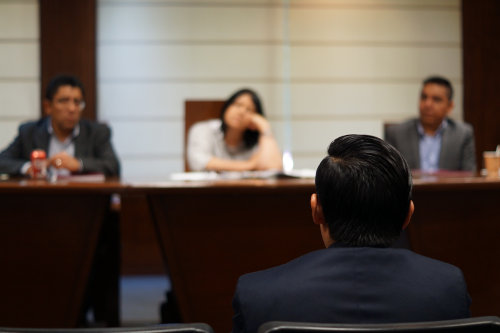Being accused of copyright infringement can be incredibly upsetting, infuriating, and terrifying. It can throw your intellectual property into question as well as your character.

Photo by Tingey Injury Law Firm on Unsplash
If someone believed that you have wrongfully used work without permission from the copyright owner, you may face legal action. This may include fines or, in particularly serious cases, a jail sentence.
But, don’t panic just yet. In the following article, we shall discuss the steps you should take if accused of copyright infringement in order to minimise the impact.
1. Resist The Urge to Respond Immediately
After being accused of copyright infringement and potentially receiving a demand for a hefty fine, it’s natural to want to react as quickly as possible. However, demanding to know why you have been accused or rushing to explain yourself is a recipe for disaster.
Anything that you say in response can be used against you, and responding with your emotions is likely to lead to miscommunication and misunderstandings. The best way to handle thing at this stage is take a deep breath and begin by going through the facts as calmly as you can.
2. Consider The Facts
Before you go any further, it’s crucial that you know all of the facts. It may seem tedious and unnecessary, but it’s important that you start with the most basic pieces of information. For example, find out exactly what you are being accused of copyrighting and how long you have been using it.
Generally, all of this information should be clearly stated within the claim. If it is not, it may be necessary to reach out and ask for more details before you proceed. If you do this, be sure to contact a solicitor so that there are no miscommunications.
3. Be Aware of Deadlines in The Claim
It can be tempting to ignore bad news, especially if it comes with a huge fine. But, avoiding the situation will do more harm than good. It’s important that you carefully read the claim, as it will often provide a deadline for a response which should be taken very seriously.
It’s also important to note that, no matter how high the fine may appear at first, this has often been inflated by irrelevant claims that will quickly be dismissed at court. This should make the worst-case scenario a lot less than initially thought.
Additionally, you should never forget to consider limitation. Limitation is the period of time from the moment copyright infringement occurred, in which the copyright owner can bring the claim to court. This tends to be a period of 6 years in which action must be taken.
4. Identify Other Ways to Handle The Dispute
When you are accused of copyright infringement, the individual or company making the claim often want to take you to civil claims court. However, there are ways to avoid this. For example, you could use…
- Mediation: both parties sitting down with a mediator to try to resolve the dispute personally without having to go to court.
- A cease and desist: this is a document that requests that a person or company stops performing an illegal action.
- Make an agreement that gives you users rights.
In addition, the accused party should make sure that the claim is valid. Consider exactly how you allegedly infringed on the copyright laws, how this happened, whether it was an honest mistake or inadvertent, if you have permission to use the material and, if so proof of this, etc.
If in doubt speak to a copyright lawyer to assess the validity of the claim.

5. Obtain a Strong Defence
No matter what, you should always seek the guidance of a copyright solicitor. Every situation is unique, so having someone to examine your case is crucial.
You may find that they see something that you have missed, for example, the copyright claim could be invalid due to an exception in the law or even because the copyright has expired. For instance, works that are common knowledge are not protected by copyright laws.
What Happens if You Ignore a Copyright Infringement Claim?
In the event that you choose to ignore a copyright claim, you may face serious consequences. The copyright holder may take you to small claims court, main court, or Chancery Division of the High Court. The court in question is determined by the amount being claimed…
- Claims up to £10k: The Intellectual Property Enterprise Court or IPEC, small claims track.
- Claims over £10k but below £500k: The IPEC, through the main court. This has a legal cost cap of £50k.
- Over £500k: Chancery Division of the High Court
Protect Your Intellectual Property
In order to protect your own property and avoid copyright infringement claims, it’s important to follow the correct procedures. In particular intellectual property like ideas, trademarks, patents, and company secrets, are amongst these.
This can be done through licencing and registering and can protect your IP from individuals and businesses who may want to copy it.

Photo by Saúl Bucio on Unsplash
Being Accused of Copyright Infringement
In this article, we delved into the process of handling a copyright infringement accusation. This included how to respond, considering all the facts, being aware of deadlines and ways to avoid going to court, what court you may have to face, having a strong defence and protecting your IP.
If you have found this useful feel free to leave us a comment or share our article online.
Please be advised that this article is for general informational purposes only and should not be used as a substitute for advice from a copyright solicitor. Be sure to consult a lawyer if you want more information about copyright infringement laws. We are not liable for risks or issues associated with using or acting upon the information on this site.